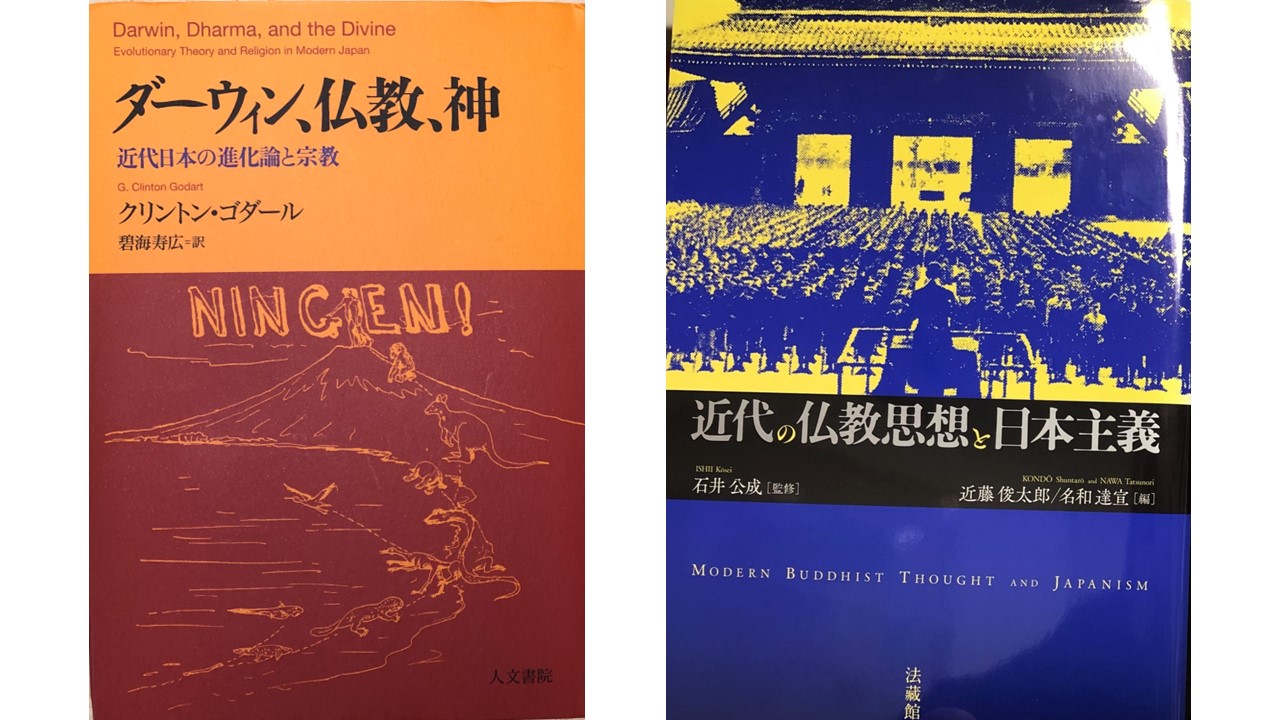Why did Nichiren gain popularity in modern Japan?
Joint Project on Modern Buddhist Studies

Presentation Points
- The Buddhist world has changed with modernization.
- The impact of modern scientific thought, especially the theory of evolution, on the world of religion.
- Why did Nichiren Buddhism gain popularity in modern Japan? How did Nichiren Buddhism change with modernization?
- The ideological background that attracted modern Japanese military thinkers to Nichiren Buddhism.
- Female believers' view of Nichiren beliefs.
Summary
Religions change with the changing times. In Japan, Buddhism has also changed dramatically since the Meiji period. For example, “lay” Buddhists published a very large number of Buddhist magazines and books, and discussed what role Buddhism should play in modern society. In addition, modern scientific thought, especially the theory of evolution, greatly sensitized the world of religion in modern Japan. In the course of this “modern Buddhism,” Nichiren Buddhism also came to be greatly discussed, and new Nichiren Buddhist movements and new Nichiren Buddhist thought emerged and gained popularity. For example, Kenji Miyazawa, the author of poems and children's stories, Kanji Ishihara, who planned the Manchurian Incident, Yoshiro Seo, a socialist, and journalist Tanzan Ishibashi all advocated Nichiren Buddhism.
Nichiren followers associated Nichiren with nationalism, and Nichiren Buddhism became popular during the Sino-Japanese and Russo-Japanese wars, when nationalism was on the rise. However, people were attracted to Nichiren Buddhism for a variety of reasons, not only nationalism, but also the global vision of Nichirenism and its “scientific” rationality. In order to fundamentally reexamine Nichirenism from this perspective, I am representing a large project, KAKENHI Basic Research (B) “Basic Research on Transcending Nichirenism: Transnational, Gender, and Spirituality” from 2019, and am I am promoting the project.
Although the history of modern Buddhism has traditionally been written primarily by men, this report focuses on the fact that many women were attracted to Nichiren Buddhism, and some of them advocated women's liberation based on Nichiren Buddhism.
Although the history of modern Buddhism has traditionally been written primarily by men, this report focuses on the fact that many women were attracted to Nichiren Buddhism, and some of them advocated women's liberation based on Nichiren Buddhism.
Publication, publication, etc.
- ゴダール・クリントン『ダーウィン、仏教、神――近代日本の進化論と宗教 』(碧海寿広翻訳、人文書院、2020年)
- ゴダール・クリントン「日蓮主義と日本主義との衝突――日中戦争期における東亜連盟運動」(石井公成監修、近藤俊太郎・名和達宣編『近代の仏教思想と日本主義』法藏館、2020年)
- ゴダール・クリントン “Nichirenism, Utopianism, and Modernity: Rethinking Ishiwara Kanji’s East-Asia League Movement”(日蓮主義、ユートピア、近代――石原莞爾の東亜連盟運動・再考、Japanese Journal for Religious Studies, 42/2, 2015年)
- ゴダール・クリントン “Future War and Future Peace after 1919: Ishiwara Kanji and the Imperial Japanese Army in the Wake of World War I,”(将来の戦争・未来の平和――石原莞爾と第一次戦争期の陸軍、 in Tosh Minohara and Evan Dawley, eds., Beyond Versailles: Reverberations of the “1919 Moment” in Asia, London: Lexington Books, 2020)
- ゴダール・クリントン「ユートピアと帝国の狭間の共感――感情史から見た小泉菊枝の『満州人の少女』と日蓮主義」(2023年出版予定)
- ゴダール・クリントン「海軍将校たちの観音信仰――小笠原長生、佐藤鉄太郎、東郷平八郎」(2024年出版予定)
Presentations and public lectures
- ゴダール・クリントン「なぜ近代日本の戦略思想家は宗教に魅かれたのか?ーー佐藤鉄太郎と石原莞爾について」公開講座、仙台白百合女子大学、2023年1月17日
- “The Dragon King’s Daughters: Women in the East-Asia League Movement (1939-1951),” European Association of Asian Studies, 25-28 August, 2021
- “Lotus of Steel: Nichirenism in the Imperial Japanese Army and Navy,” Keynote speech, International Symposium on Japanese Studies, Thammasat University, Bangkok, February 2020.
- “Religious Receptions of Darwinism in Modern Japan,” keynote speech at the Second East Asian Society for the Scientific Study of Religion (EASSR), July 27-28, 2019, Hokkaido University, Japan
- “Aspiring to Singularity: Nichirenist hopes for the Unification of Space, Gender, and Mind,” panel Rising Lotus: Rethinking Nichirenism in Twentieth Century Japan and East-Asia, AAS-in- Asia, Bangkok. July 2019
contact information
- Godart, Clinton(Japanese Religious and Intellectual History Studies)
- E-mail: godart [@] tohoku.ac.jp

